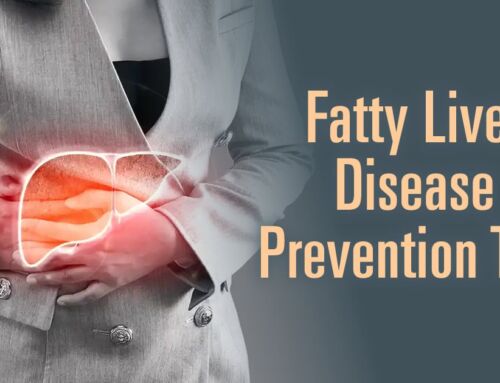While the internet provides a wealth of information, it can be challenging to differentiate facts from falsehoods, especially healthcare-related ones. These myths can lead well-meaning people to engage in unnecessary practices that could harm their digestive health.
Dr. Havranek will address many myths surrounding gut health in this article. Learn which are true or false and the science behind each one.\
10 Digestive Health Myths
Myth #1: The more fiber, the better.
True, because less is not more when it comes to fiber and your digestive health. Instead, studies suggest that more fiber is better. Fiber, especially soluble fiber, is an excellent source of nutrition for your gut bacteria, which helps protect you from infections and inflammatory diseases, including colitis, irritable bowel disease, and Crohn’s disease.
Additionally, increased fiber intake aids easier bowel movement and helps prevent diarrhea, constipation, and hemorrhoids. It also reduces the risk of colorectal cancer mortality by 16 to 24%. However, too much fiber beyond the recommended 25 grams daily intake can cause gas and bloating.
Myth #2: Bloating is triggered by what we eat.
True! Food can cause bloating, especially when one has specific food intolerances or sensitivities. Typically, humans don’t make gas, the gas is made by bacteria fermentation of foodstuff in our bowels. However, several other factors can also trigger bloating. Some of the foods that can induce bloating include beans, dairy products, carbonated drinks, whole grains, and cruciferous vegetables.
Myth #3: Gluten is bad for your gut health.
False! Rather, gluten-free diets can negatively affect your gut in the long run. Why? Research shows that going gluten-free reduces the number of beneficial bacteria in your gut. More so, gluten-free products are often lacking in essential nutrients like folic acid, B12, fiber, and selenium.
However, gluten may spell trouble for people with celiac disease, gluten intolerance, or sensitivity. In persons with an intolerance or sensitivity, gluten can trigger inflammation and result in a condition known as a leaky gut. Hence, they are advised to stay gluten-free.
Myth #4: Leaky Gut will allow food particles to enter your bloodstream
True! Leaky gut is a condition where the lining of your intestines gets inflamed and damaged, allowing undigested food particles, bacteria, and toxins to enter your bloodstream.
Typically, the intestines have tight openings that allow certain nutrients and water to get absorbed into the bloodstream while trapping other harmful substances within the intestines. However, when one has a leaky gut, the rate at which substances can pass through the intestinal lining increases.
Myth #5: Probiotics Solve All Gut Health Issues
False! While probiotics can help relieve specific gut symptoms and digestive issues, several other conditions require interventions such as medications and surgery.
A few studies suggest that certain probiotic strains can help treat antibiotics-associated diarrhea (AAD), traveler’s diarrhea, and symptoms of irritable bowel syndrome (IBS). However, this evidence does not say probiotics solve all gut health issues.
Myth #6: Fermented Foods Are as Effective as Probiotics
False! Not all fermented foods contain probiotics that can benefit your health or can survive the process of digestion. Hence, they’re not as effective as probiotics.
Myth #7: Food intolerance tests will help diagnose my gut issues.
False! As far as science goes, no food intolerance tests (except a specific breath test for diagnosing lactose intolerance) can diagnose gut issues.
Yet, certain individuals and companies have packaged pseudo-tests, selling them as intolerance or sensitivity tests that can diagnose gut problems. Examples include IgG tests, applied kinesiology or NAET tests, electrodermal tests, and gastric juice analysis tests. These all lack scientific and clinical evidence.
Myth #8: You should have a bowel movement every day.
False! It is perfectly normal not to poop every day. While there is no exact number, a good measure of a healthy and regular bowel pattern is the 3 and 3 rule, which means that going to the toilet anywhere from 3 times a day to 3 times a week is considered ‘normal.’
Our bowel movement patterns differ and can be influenced by diet, hydration, activity, stress, and age. However, seek medical help if you notice any sudden changes in the time, consistency, and frequency of your toilet habits.
Myth #9: Apple cider vinegar can cure digestive problems.
False! While this is a common claim, there is no scientific evidence that Apple Cider Vinegar (ACV) can aid digestion or treat digestive problems. Instead, it has been shown to cause tooth erosion, acid reflux, and heartburn in some individuals.
Other studies suggest that ACV can reduce stomach emptying, that is, the time it takes for food to move from the stomach to the intestines. This can result in nausea, vomiting, and bloating.
Myth #10: You need a colon cleanse for good gut health and to ‘get rid of toxins’.
False! Your colon naturally builds beneficial bacteria and other microbes, which help fight infections and keep you healthy. Also, toxins do not build up in the colon during normal digestion. So, you do not need a colon cleanse to improve your gut health. Rather, a colon cleanse can disrupt the normal flora of your intestine and cause infections.
Main Takeaways
Taking care of your health is very important and highly recommended. However, it would be best to be suspicious of “quick fixes” or “hacks” while at it. When it comes to your digestive health, living an active lifestyle, eating a balanced diet, and getting plenty of sleep are the foundation for a healthy gut. So, anytime you come across health information or advice on the internet or social media, find out who wrote it and their qualifications.
Eating a healthy and balanced diet is essential to developing good bacteria in our microbiome. However, consult your primary care physician or gastroenterologist before making dietary changes or taking a new dietary supplement. Checking with your doctor first helps ensure the change is safe and has the best outcomes.
If you’re concerned about any new or existing digestive issues, you can request an appointment online or call our office at 210-615-8308.




